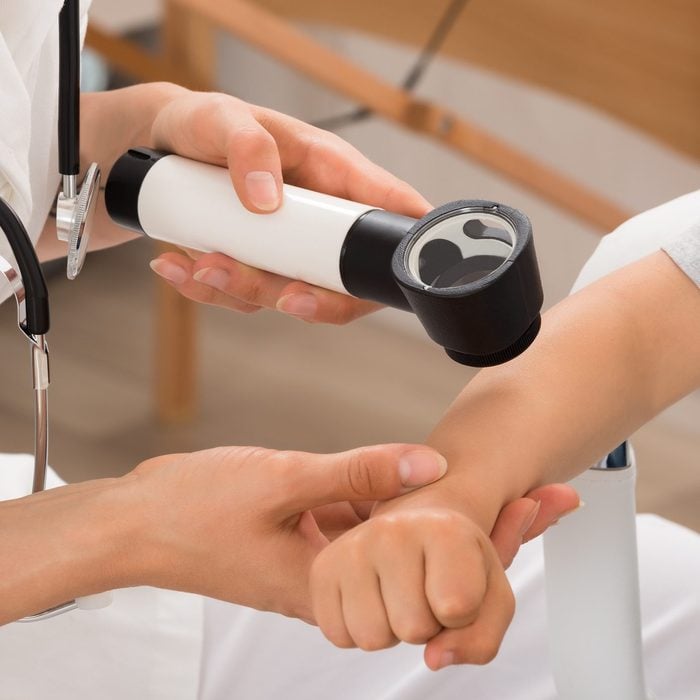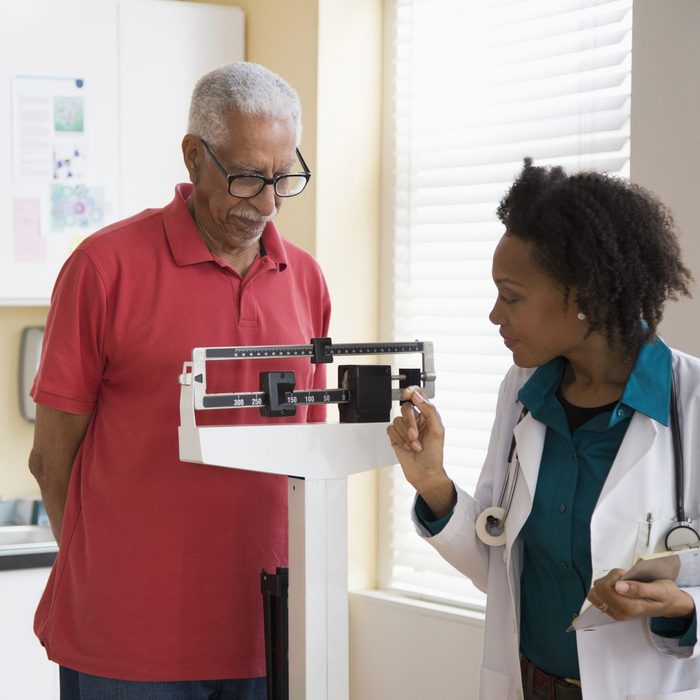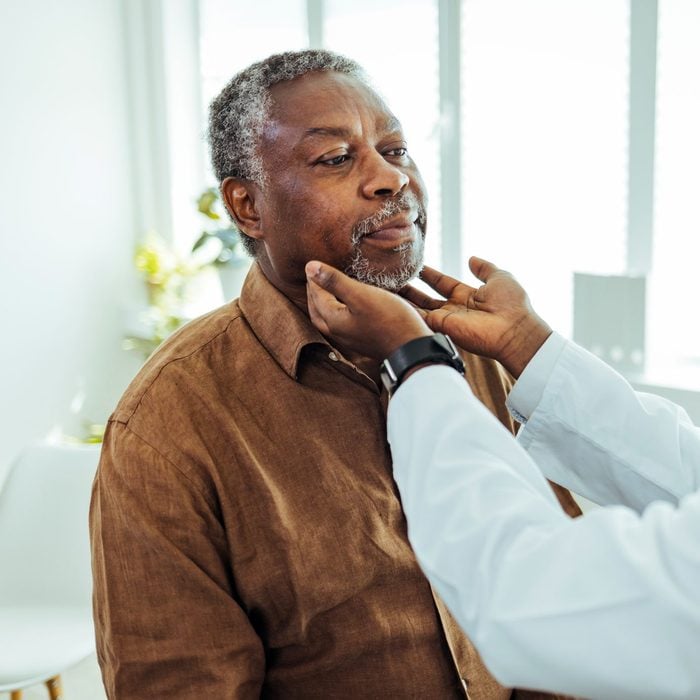
You know your doctor trained for years to take care of their patients, but you might be surprised to consider that they can glean insights into your health before you’ve even spoken a word. In fact, physicians are trained to quickly assess patients based on your visual and social cues.
By understanding these initial observations, you can become more attuned to your body’s signals and collaborate with your doctor to maintain optimal health. Let’s explore some key aspects your doctor first notices about you.

1. Your posture
Good posture is crucial not only for spinal health, but also for overall well-being. When you enter your doctor’s office, your posture is one of the first things they notice. Your body’s alignment can reveal a lot about your overall health, with poor posture potentially indicating muscle imbalances, pain, or spinal misalignment. Your doctor may inquire about back pain or discomfort if you’re slouching or hunched over.

2. Your skin
Your skin can divulge a wealth of information about your health. Your doctor will observe its color, texture, and rashes or spots. As a couple examples, a pale or yellowish complexion might suggest anemia or jaundice, while dry or flaky skin can indicate dehydration or nutrient deficiency. Expect follow-up questions to determine if further examination is needed.

3. Your breathing
Your breathing pattern offers valuable information about your overall health. Labored or heavy breathing could signal asthma or a respiratory infection, while shallow breathing may indicate anxiety or stress, as well as other health conditions. Being mindful of your breath can help you relax and give your doctor crucial clues about your well-being.
6 Breathing Mistakes You’re Making—And How to Breathe Better

4. Your weight
A significant change in your weight, either gain or loss, can hint at underlying health issues. Your doctor will likely compare your current weight with previous records to determine if there is cause for concern. Unexplained weight fluctuations may necessitate additional tests for thyroid issues, hormonal imbalances, or other conditions.
What Is Your ‘Set Point Weight’? Here’s How To Gauge It—And Why a Doctor Says You’ll Want To

5. Your eyes
Often called the windows to the soul, the eyes can reveal much about your health. Bloodshot eyes can indicate allergies, lack of sleep, or eye strain, while yellowing of the whites of the eyes may suggest liver problems. Your doctor will also check for droopy eyelids, a sign of a neurological condition called ptosis.

6. Your mobility
Your walk, or “gait” can tell your doctor a great deal about your musculoskeletal health. Your doctor will assess your walk for abnormalities and may inquire about your exercise habits or past injuries. A limp or irregular gait might indicate joint pain, muscle weakness, or a neurological condition.
The Top 8 Walking Mistakes Orthopedic Doctors Say People Make

7. Your speech
Slurred, slow, or hesitant speech can indicate neurological issues like stroke or Parkinson’s disease, while rapid, pressured speech may suggest anxiety or a manic episode for those with bipolar disorder. Your doctor will listen closely to your speech patterns and ask questions if irregularities are noticed.
Doctors Explain Aphasia: The Brain Condition Leading Bruce Willis to Retire from Acting

8. Your mood
Your doctor will closely observe your overall demeanor during your visit. Are you upbeat, anxious, or irritable? Mood changes can sometimes signal underlying health issues such as depression, anxiety, or hormonal imbalances. Your doctor will note your emotional state and may inquire about your mental health history to determine if further evaluation is needed.
The Happiness Diet: 7 Best Mood-Boosting Foods, from Nutrition and Brain Experts
These are just some of the early observations your doctor might make about you. By becoming aware of these initial health indicators, you can develop a deeper connection with your body and work hand-in-hand with your physician to achieve optimal wellness.
The National Institute on Aging, a part of the National Institutes of Health, offers a valuable guide to help you prepare for your doctor’s appointment. Their tips include:
- Make a list of your health questions, and prioritize them in order of which concern you most
- Take information with you, such as your list of all medications, vitamins and supplements, as well as your medical records (if your doctor is new to you)
- Consider bringing a loved one or trusted friend to the doctor’s visit
- Keep your doctor informed of any changes to your health and wellness
- Take steps so you can see and hear as well as possible
- Ask for an interpreter, if you need one
Embrace the messages your body sends and harness this knowledge to steer your well-being in the right direction. Staying informed empowers you to make the best choices on your journey to better health.
- Here’s How Often You Need to Vacation To Prevent Premature Death, Says Overwhelming Research
- When You Use Olive Oil and Other All-Natural Oils as Moisturizer…Do You Absorb the Fat Content? An Obesity Doctor Explains
- Increasing Your Intake of This Mineral Could Lower Your Dementia Risk, Says New Study
- What Is Medical Gaslighting? 9 Doctors’ Statements That Are Major Red Flags
